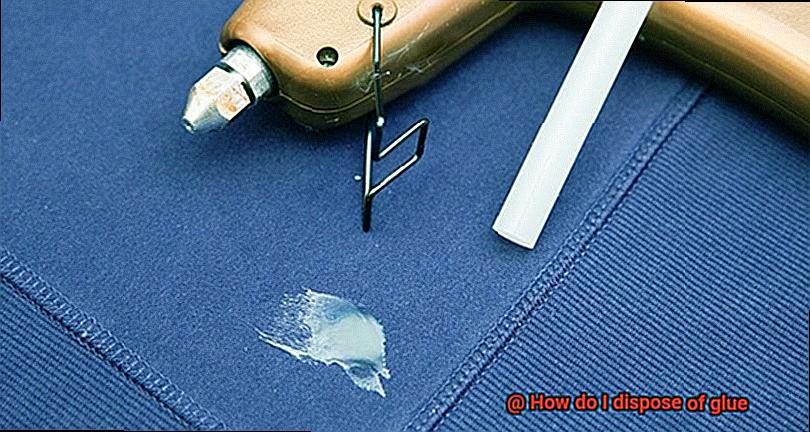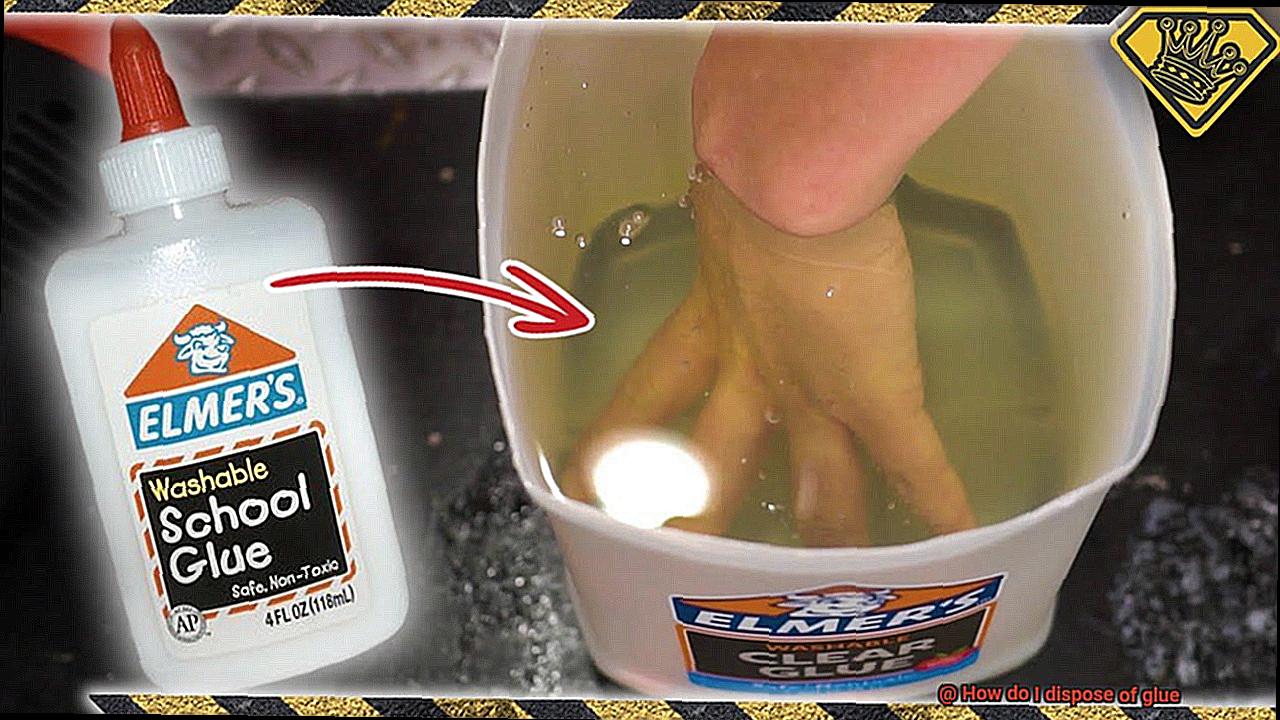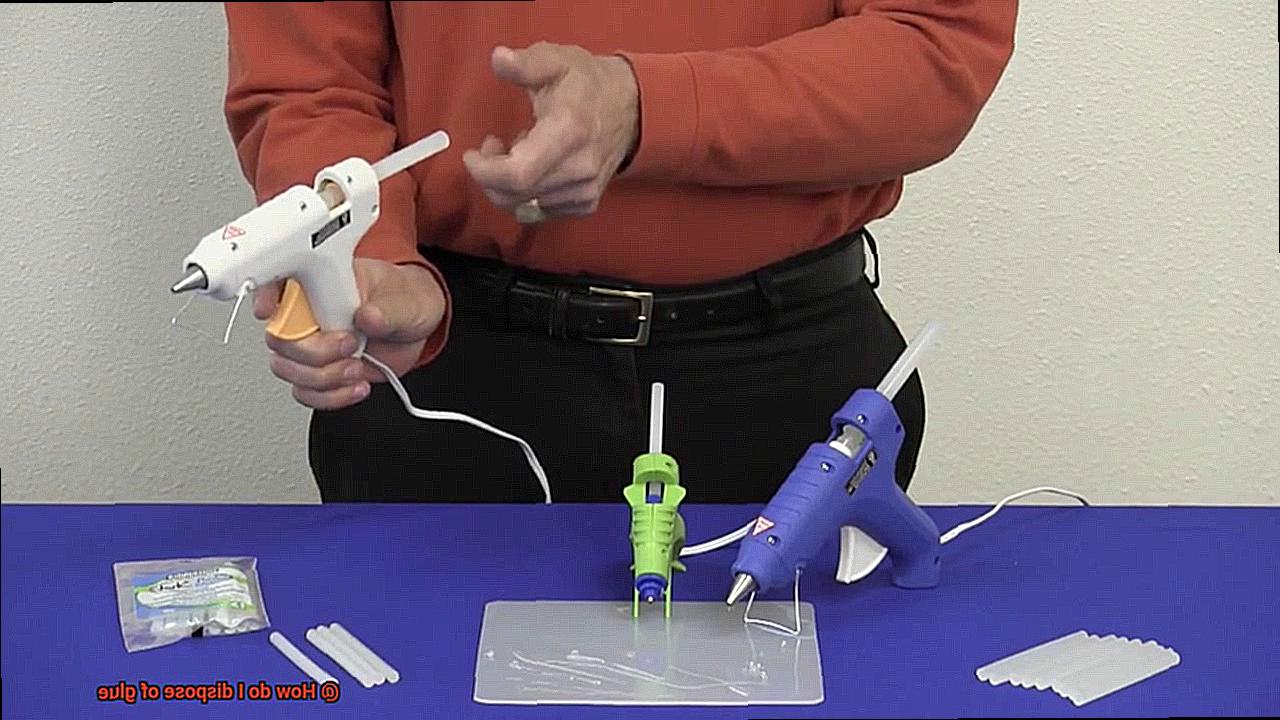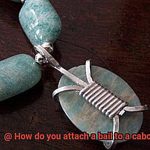Are you tired of having a cluttered crafting or DIY space due to leftover glue tubes and bottles? Disposing of glue can be confusing, especially when it’s not your everyday waste. So, what is the correct way to dispose of glue? You may be tempted to toss it in the garbage can or pour it down the drain, but these actions can harm public health and the environment. But fear not. There are many eco-friendly ways to dispose of glue that won’t cause any harm.
As an expert on this subject matter, let me tell you about the different types of glue and their specific disposal methods. From PVA glue to hot glue, each variant requires a unique handling technique. And trust me; you don’t want to get it wrong. Some popular disposal options include recycling, drying out before throwing away, or disposing of it in a designated hazardous waste center. Additionally, you can repurpose leftover glue by turning them into glue dots, creating slime with them or even making DIY wax for envelopes.
Overall, disposing of glue doesn’t have to be a headache if you know how to do it correctly. In this blog post, we will delve into various disposal methods for different types of adhesive materials so that you can make informed decisions while being environmentally responsible. So keep reading and find out more about how to dispose of your excess glue sustainably and responsibly.
What Type of Glue Are You Dealing With?
Contents
The first step is to identify what type of glue you are dealing with. There are many different types of adhesives available on the market, each with its own unique properties and composition.
Let’s begin with the most common type of glue – white glue. Also known as school glue or PVA glue, this type of adhesive is water-soluble and non-toxic. Cleaning up after using this glue is easy – just use soap and water. You can safely dispose of white glue in the trash, but make sure it dries out completely first. Simply leave the cap off the bottle or spread the glue out on a piece of scrap paper and let it dry overnight.
Superglue or cyanoacrylate glue is another popular type of adhesive that requires special handling. Unlike white glue, superglue is not water-soluble and can be difficult to remove once it has dried. Moreover, it can bond skin together if not used properly, so handle it with care. Don’t pour it down the drain or throw it in the trash. Instead, take it to a hazardous waste disposal facility for safe disposal.
Epoxy glue, contact cement, hot glue, and wood glue are other examples of adhesives that require proper disposal methods. Each of these glues has its own unique properties and should be disposed of accordingly. To be sure you’re doing it right, read the label on your product for specific instructions.
Disposing of Water-Based Glues
Today, we’ll be exploring the world of disposing of water-based glues. Luckily, this type of glue is non-toxic and environmentally friendly, making it a breeze to dispose of. However, it’s important to follow a few simple steps to ensure that you’re disposing of it safely. Let’s dive in.
First things first, never pour water-based glue down the sink or drain. This can cause severe plumbing issues and harm the environment. Instead, you can let the glue dry out entirely before throwing it away. All you need to do is leave the glue open in a well-ventilated area for a few days until it hardens and becomes brittle. Once it’s completely dry, toss it in your regular trash.
Another option is to recycle the container that the glue came in. Most water-based glue containers are made of plastic and can be recycled along with other plastic waste. Just make sure to check with your local recycling facility to see if they accept these types of plastics.
If you have a large amount of leftover water-based glue, consider donating it to a local school or community center. Many educational and art programs rely on donations of supplies like glue, and your donation could make a significant difference.
It’s essential to keep in mind that even though water-based glue is non-toxic, it’s still a chemical substance that should be handled with care. Follow any instructions on the label and keep it out of reach of children and pets.

Disposing of Solvent-Based Glues
Solvent-based glues are commonly used in woodworking, construction, and automotive industries. However, their volatile organic compounds (VOCs) can be harmful if not disposed of properly. Let’s dive into the best ways to dispose of these types of glues.
The first step is to check the product label for any specific instructions on disposal. Manufacturers may provide guidelines or recommend recycling programs for their products. Following these guidelines is crucial to avoid harm to the environment.

If there are no specific instructions on the product label, take the solvent-based glue to a hazardous waste facility. These facilities are specially designed to handle hazardous materials safely and responsibly. Remember to store the glue container in a secure and leak-proof bag before transporting it.
It’s vital never to pour solvent-based glue down the drain or throw it in the trash. This can contaminate water sources and harm wildlife. It’s important always to prioritize proper disposal methods.
If a hazardous waste facility isn’t accessible, you still have options for disposing of small amounts of solvent-based glue. One option is to let it dry out completely and then throw it in the trash. Ensure that it’s completely dry before disposing of it in the regular trash.
Another option is to try and reuse leftover glue for future projects. This can help reduce waste and save money on purchasing new glue while keeping harmful chemicals out of the environment.
Remember always to wear gloves and protective clothing when handling solvent-based glues, regardless of the disposal method chosen. This will protect you from any potential harm or irritation.
Recycling Glue Bottles
Recycling glue bottles is not only an excellent way to reduce waste but also a small step towards protecting our planet for future generations. In this blog post, I will share with you how easy it is to recycle your glue bottles.
Before recycling your glue bottle, it’s crucial to ensure that it is empty and clean. Leftover glue can contaminate the recycling process and render the materials unusable. To clean your glue bottle, start by using up as much of the glue as possible. Then, use a paper towel or cloth to wipe off any excess glue from the bottle.
Next, fill the bottle with warm, soapy water and shake it vigorously to loosen any remaining glue. Rinse the bottle thoroughly with water until all soap residue is gone. Once the bottle is clean and dry, it’s ready for recycling.
If you have plastic glue bottles, you can easily recycle them along with other plastic containers in your curbside recycling bin. However, glass bottles may need to be taken to a recycling center that accepts glass. It’s important to check with your municipality or waste management company about their specific guidelines or restrictions on certain types of plastic or glass.
By recycling your glue bottles, you’re not only reducing waste but also conserving valuable resources used in the manufacturing process. Every small step towards protecting our planet counts, and recycling your glue bottles is an easy way to make a difference.
Other Considerations When Disposing of Glue
Let’s dive into what you need to know about disposing of glue safely and responsibly.
First and foremost, it’s crucial to read the label or packaging of the glue for any specific disposal instructions. Some glues have particular requirements for disposal, such as being thrown away in a certain type of container or taken to a hazardous waste facility. These instructions are there for a reason, and following them is essential to ensure that the glue doesn’t end up harming people or the environment.
Speaking of the environment, that brings us to our next consideration: the environmental impact of the glue and its disposal. Some types of glue can be harmful if not disposed of properly. Solvent-based glues, for example, can release harmful fumes into the air and contaminate soil and water if not disposed of correctly. That’s why it’s crucial to check with your local government or waste management facility for guidance if you’re unsure about how to dispose of your glue safely.
Another important aspect of glue disposal is safety. If the glue is still wet or sticky, it can be a hazard to pets or small children who may accidentally come into contact with it. To prevent any accidents, keep any leftover glue and its container out of reach and dispose of it as soon as possible.
Lastly, if you have concerns about the impact of your glue on the environment or are disposing of a large amount, consider finding alternative ways to use or recycle it. Some community organizations or schools may accept donations of glue for art projects or other uses. Additionally, some types of glue can be recycled or repurposed for other household projects.
Also Read: How do you remove dried glue from rubber?
Conclusion
In conclusion, disposing of glue doesn’t have to be a headache. With the right knowledge and approach, you can dispose of it sustainably and responsibly. Identifying the type of glue is crucial in determining the correct disposal method.
For water-based glues, letting them dry out completely before throwing them away or recycling the container is an eco-friendly option. On the other hand, solvent-based glues require proper handling and should be taken to hazardous waste facilities for safe disposal.
It’s essential to prioritize proper disposal methods as glue can have a significant environmental impact and pose potential hazards. Always read the label or packaging for specific instructions on disposal as some glues have particular requirements.
Safety should also be considered by keeping any leftover glue and its container out of reach of pets or small children. Additionally, finding alternative ways to use or recycle leftover glue can help reduce waste and benefit community organizations or schools in need.
By following these guidelines, you can dispose of your excess glue sustainably while keeping your crafting or DIY space clutter-free.






